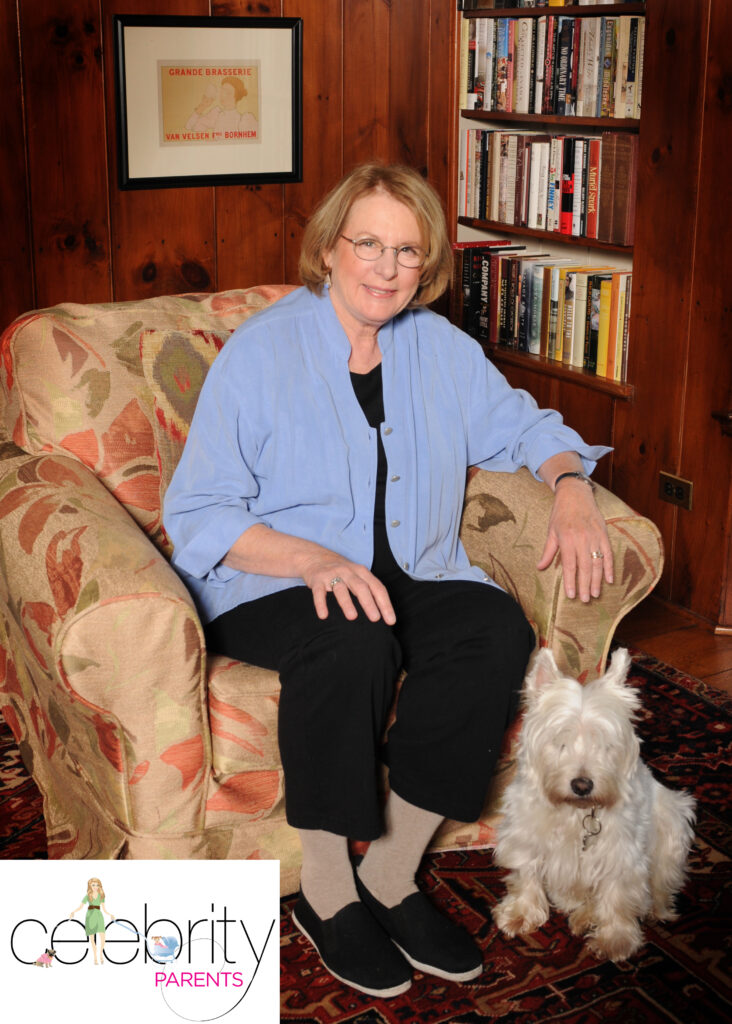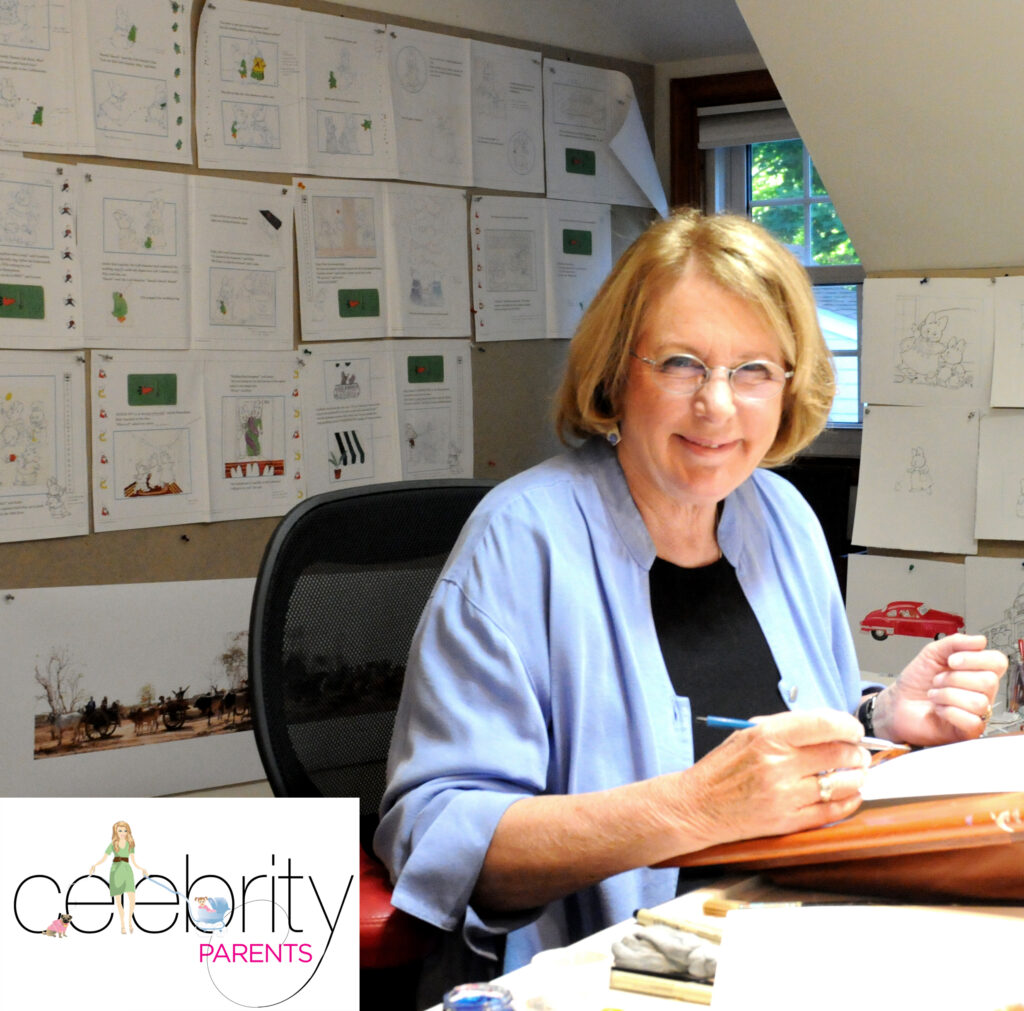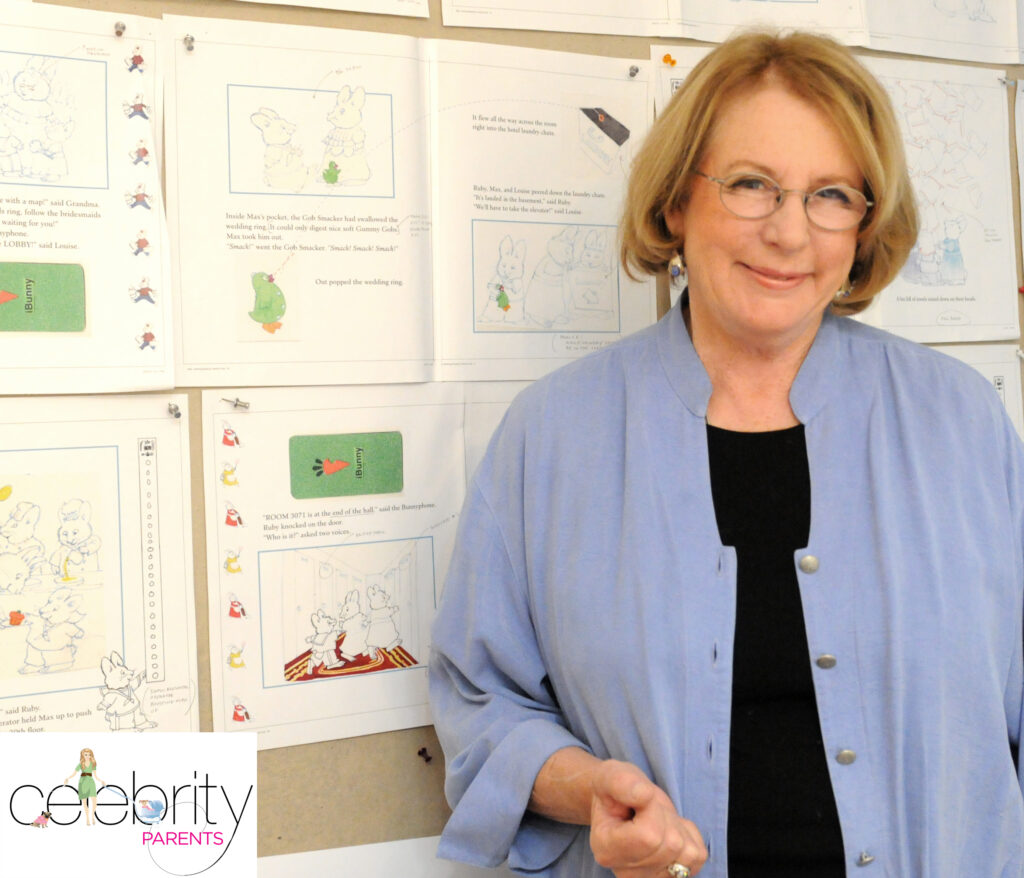It’s bedtime, and you place your freshly bathed child on your lap. You snuggle, soaking in the scent of their sweet hair, and you pick up a book to read together. Truly, it’s one of life’s most delicious moments, but you don’t have to tell Rosemary Wells that. The acclaimed children’s author of the Max & Ruby series, as well as other adorable characters like Yoko, Sophie, and Felix, is passionate about parents spending quality time with their children, doing (what else) reading. We spoke exclusively with Rosemary Wells about the importance of storytelling and why parents should never create barriers to impede them from reading books with their children.
As the creator of Max & Ruby, could you ever have imagined the success it would have become?
I never could have imagined it. I write the books, and the books are where I feel the real Max & Ruby live. The stories in books are always more considerate, they take more time, and they are from the original author. The show is very nice; it’s very wholesome. You’re never going to find anything in a Max & Ruby show that isn’t wholesome. For that reason, it’s good TV, but I’m not much of a fan of TV for children. I think children watch entirely too much of it and I greatly believe in reading books to them and encouraging a love of books.
The first five years of life are so important, and one thing we have to remember is that the American Academy of Pediatricians has stated, without compromise, no TV at all for kids under the age of 2. And after that, an hour a day if that, and supervised. That’s very hard to do for families that aren’t accustomed to it and who work hard and are busy; I know that. But I’m very pleased if I’ve contributed anything to television, which is such a popular medium for kids.
I would think that parents and children who are watching the show would want to read the books as well.
Yes, that’s what you hope. But the readership of children’s books has fallen greatly in the past few years. Our libraries do not have the funds they need to keep supplying their shelves with books. Books are expensive and people’s discretionary income isn’t what it used to be prior to the recession. So children’s books, as an industry, has begun to cycle way down. Publishing is having a very hard time for that reason: no library funds, the government defunding the book buying that we so depended on, and the population in general not having jobs and the money to buy books. Nonetheless, the children’s libraries still have lots of books, and all of our libraries have story hours.
Parents, for a lot of reasons, might feel uncomfortable reading aloud. They might feel like they have to perform or that they aren’t good readers, or they don’t speak English; there are lots of reasons. A few visits to the library will cover those reasons. First, there’s no better way to learn to read English than to do it with a children’s book because they’re simple. You can sit there with a child in your lap and even read the pictures, without the TV on as background sound. It kills conversation and critical thinking, and any number of family activities that are very healthy for children to grow up with.
When your own children started reading on their own and don’t need you anymore, as a parent, you feel that sense of loss.
Oh, but you never stop reading aloud. When you have children of different ages, you read to the oldest child because the little ones listen up. When I write, I never write for a specific age level. I always write for the most intelligent child because I believe the most intelligent child can live in the South Bronx, in East L.A., or the rural hills of Kentucky.
What do your grandchildren think of the fact that their grandmother is a famous author?
I have five granddaughters, so I get an awful lot of kids in my life and I love it. But when your children grow up with anything, whether they have movie stars as parents or athletes, they take it for granted and they never bat an eye. Sometimes I put my grandkids on my lap, and they’ll arrange my pencils. They’ll say, “Omi, can we sharpen your pencils now?” but they pay no attention. It’s as if I were a house painter! [laughs]
I feel like there’s nothing like going into a bookstore and smelling the books or getting a new book and cracking the spine.
I don’t like reading books on screens. Children’s books on screens don’t work, and I’ll tell you why. They’re too expensive to do, so publishers have to cherry pick which ones they’ll do. If you give it to a child, they swipe through the pages too quickly, they don’t read the story in order, and it becomes a mish mosh. Animation, like the one in Max & Ruby, is so expensive, so they have animation that’s like from 1981. It becomes a barrier between the parent and the child. In special situation and emergencies when you can’t cart a book around, it’s great. I don’t like reading that way, though. However, I love books on tape and I’m a big fan of them. For children, audible books are great. It allows you to picture and imagine.
It’s not the same as turning a real page.
It’s not. It’s a loss of intimacy.
Now, let’s talk about your other projects, because you don’t just write Max & Ruby stories.
No, Max & Ruby isn’t the only one by any means. Yoko is one of my absolute favorite characters. I always say that my books are completely non-fictional. Max and Ruby, Yoko, Sophie, so many of them are non-fictional, all based on real incidents from my childhood or my children’s childhood. And Yoko is based on three little girls in the first grade at my daughter’s school. Now this was 35 years ago, and these little girls came in with little Japanese lunches in bento boxes that their mothers made for them with brown rice and sushi. And the kids would say, “Yuck, seaweed!” or “Raw fish? Yuck!” And the three little girls would laugh at the American kids because they didn’t care. Now, Yoko illustrates exactly what it is to be a writer. Telling the story of the three kids makes no emotional impact at all. So I saw the teasing, bullying, and insensitivity, and saw it had no effect. But supposing there was just one little girl; how would she have felt? And that’s where you change reality to make a greater reality. But Yoko is about one, and once I had one, I had my story. There have been quite a number of Yoko books, and Sophie is my granddaughter, Frances.
Sophie is terrible two’s and every problem is a simple problem. The parents are completely clueless, and Grannie comes in and solves the problem and everyone is happy. And then there’s Felix, which is a new series based on an old character but I’m making him older, like kindergarten age. Felix is a guinea pig and he has a best friend, Wendy. She’s bossy, pushy, imaginative, and brave, and Felix is a wuss. He’s sweet, smart, but always gets picked on, and she saves him. He’s the temperate judge — I think in every good relationship, there’s a kite and there’s the holder of the string.
Of course, parents should start reading to their children as early as possible, but what would you recommend?
Starting around 6-7 months old, have a child in your lap, read 20-30 minutes every day, just as faithfully as you brush your teeth. Enter that wonderful world, and the only thing that you’re supposed to do is to convey a love of story. Two hundred years ago, we didn’t have children’s books, but we would have a grandmother or a grandfather sitting around a fire, and the children would listen to the stories. They would use their imaginations, and this is the single thing that books do. It allows children to escape to other worlds and it opens hundreds and then thousands of doors to them. Nothing else can do that but a book, and there’s no greater expression of love than a parent saying, “Okay, sit here and now we’ll have story time.”





